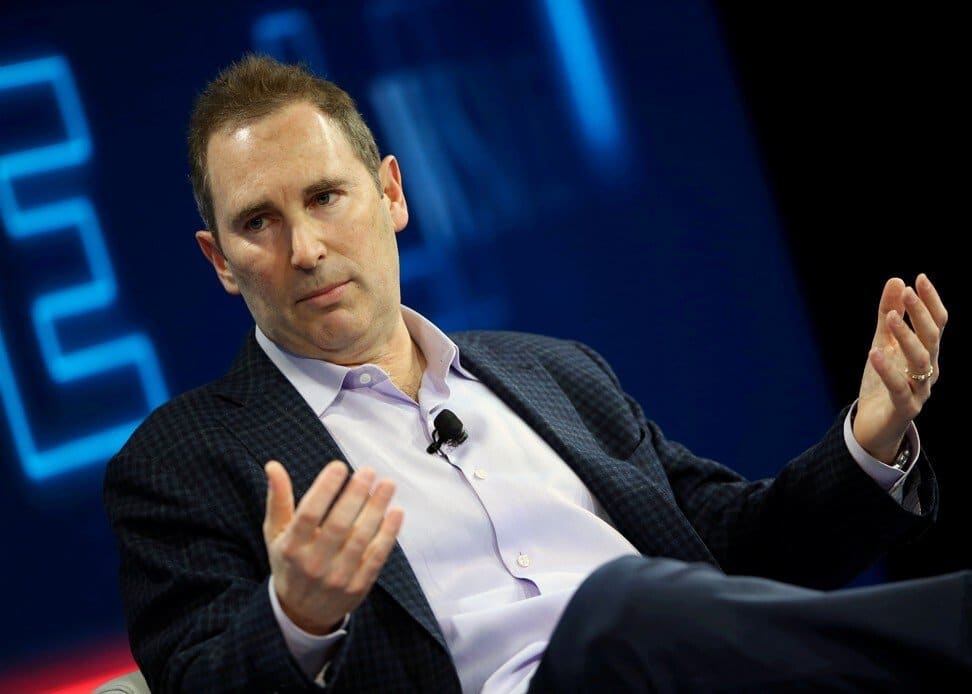
Concerns about the health of the American economy are increasing, leading to greater uncertainty in the markets.
The latest updates from the Federal Reserve have helped fuel the fears.
Federal Reserve staff, preparing members for last month's policy meeting, raised the risk of a near-term recession, minutes of the debate showed on Wednesday. But voting for a ninth consecutive rate hike was ultimately swayed by lingering inflation risks.
Don't Miss: Warren Buffett Sends a Warning About the Banks
In a nod to the banking crisis, which was fresh in the minds of policymakers after Silicon Valley Bank collapsed and Signature Bank was seized by regulators, Fed officials debated a pause in rate hikes in order to assess its ultimate impact.
But they noted that firm wage growth left "upside risks to the inflation outlook" that were the "key factor shaping the policy outlook."
Amazon CEO Andy Jassy's Warning
Banking-sector risks, the minutes indicated, "were likely to result in tighter credit conditions for households and businesses and to weigh on economic activity, hiring and inflation," but the overall impact was deemed "highly uncertain".
The first-quarter earnings season, which starts April 14 with the big banks, should provide some answers and clues on the health of the economy.
In the meantime, Andy Jassy, CEO of Amazon (AMZN), has just sent a warning that should chill the most optimistic investors.
The e-retailing and cloud-computing giant is a barometer of the economy because its activities affect a large number of sectors. In addition, the e-commerce company serves both consumers and businesses, which is a good point from which to take the economy's temperature.
In his recent annual letter to shareholders, published April 13, Jassy is not very optimistic. He warned that the Amazon Web Services cloud-computing division, which sells data storage and computing power to businesses, is going through a tough time.
"Despite growing 29% year-over year in 2022 on a $62 billion revenue base, AWS faces short-term headwinds right now as companies are being more cautious in spending given the challenging, current macroeconomic conditions," Jassy wrote in the letter, which you can read here.
"While some companies might obsess over how they could extract as much money from customers as possible in these tight times, it’s neither what customers want nor best for customers in the long term, so we’re taking a different tack."
Jassy, who succeeded Founder Jeff Bezos as CEO in July 2021, is facing an economic downturn that is clouding the Seattle-based giant's profitability.
He launched one of the deepest austerity cures that the juggernaut has ever known. It put an end to certain projects, killed certain services and products and above all it cut 27,000 jobs in just a few months.
More Job Cuts in the Pipeline?
He hopes these measures will help preserve profitability and enable the group to withstand the economic shocks to come.
"While these short-term headwinds soften our growth rate, we like a lot of the fundamentals that we’re seeing in AWS," Jassy said.
"Our new customer pipeline is robust, as are our active migrations. Many companies use discontinuous periods like this to step back and determine what they strategically want to change, and we find an increasing number of enterprises opting out of managing their own infrastructure, and preferring to move to AWS to enjoy the agility, innovation, cost-efficiency, and security benefits."
AWS is a key business for Amazon. It is the most profitable activity. In 2021, for example, AWS generated operating profit of $18.5 billion, almost three-quarters (74%) of groupwide operating profit was $24.9 billion that year.
In 2022 AWS recorded operating profit of $22.8 billion.
"Slowing cloud demand remains a key concern as businesses shift focus from accelerating cloud migration to optimizing cloud costs," Jefferies analyst Brent Thill said in a note earlier this week.
"AWS estimates continue to contract, with consensus implying year over year growth troughs in 2Q23. Given AWS comprises the vast majority of Amazon's operating income, a stabilization in cloud is crucial for shares to outperform."
Jassy warned that the austerity cure was not over. Amazon could announce additional job cuts.
"There are a number of other changes that we’ve made over the last several months to streamline our overall costs, and like most leadership teams," he said. "We’ll continue to evaluate what we’re seeing in our business and proceed adaptively."
Amazon also required its corporate employees to come back to the office three days a week, beginning in May.
"I’m optimistic that we’ll emerge from this challenging macroeconomic time in a stronger position than when we entered it," Jassy concluded. "I strongly believe that our best days are in front of us."
Get exclusive access to portfolio managers and their proven investing strategies with Real Money Pro. Get started now.







